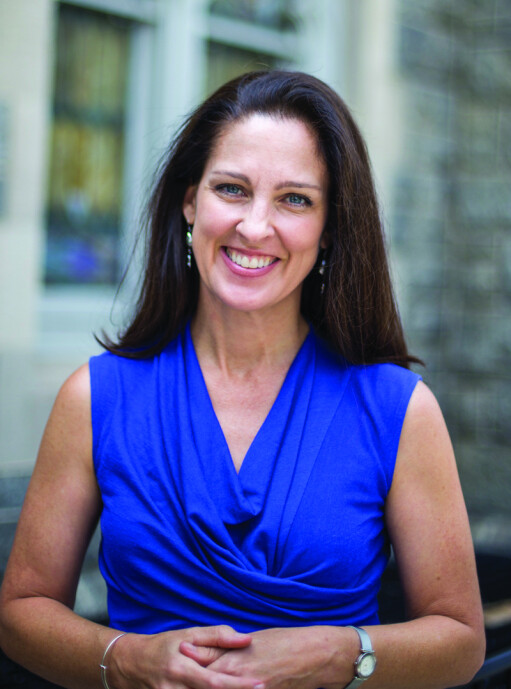How to love through resistance
By Ginger Gaines-Cirelli*

Rev. Ginger Gaines-Cirelli
The language of “resistance” has a long history. I’m not a political theorist or activist; I’m a pastor-theologian and a follower of Jesus. Thus, the language of “resistance” for Christians evolves through prayer, conversation, and practice in a different way.
Sacred resistance is a stance, a way of being in the world, and an ongoing orientation to the world. As followers of Jesus, sacred resistance is at the heart of our being, not just our doing.
When we gather for the called General Conference in 2019, my deep prayer is that those like myself who are honored with the responsibility to speak and vote as delegates will come without defensive resistance toward other people, a resistance fueled by preconceived or hardened opinions of one another.
Instead, I hope we will arrive committed to “sacred resistance” toward the destructive energies that seek to terminate our communion and to harm those most vulnerable among us. I pray we will arrive energized and fueled by
If we truly try to follow Jesus, we’ll understand that God’s creative, mending, saving love is extended to the whole world and is particularly focused on the vulnerable and those experiencing pain or injustice. Even a cursory review of the Gospel accounts
of Jesus’s life reveals that he spent most of his energy in the margins, healing the sick, feeding the hungry, confronting injustice, restoring life and dignity to those for whom these gifts had been denied.
There are innumerable persons around the world who suffer the indignities of poverty, violence, injustice, and prejudice. Thanks be to God that our denomination is in solidarity and service with so many people across the spectrum of human affliction.
Yet the UMC singles out LGBTQ persons — who daily face stigma and rejection — and labels these human beings “incompatible with Christian teaching.”
Among us are persons of deep and thoughtful faith who are unable to reconcile their reading of scripture with the claim that LGBTQ people are just like them except for sexual orientation
or gender identity. There are amazing, faithful, Jesus-following LGBTQ leaders and participants across our church at every level. Many of these persons have great compassion for those who struggle with the
or will never enter our blessed communion because they know they will not be received as God’s dearly loved children.
In his first letter to the Corinthian churches, Paul described life together: “Christ is just like the human body — a body is a unit and has many parts; and all the parts of the body are one body, even though there are many. . . If one part suffers, all the parts
suffer with it” (1 Cor 12:12, 26 CEB). What affects one, affects all. This is
one reason why Jesus said to “love your neighbor as yourself.”
To love our neighbors as ourselves will require that we
see the other persons as human beings, not as walking stereotypes or abbreviations or “issues.” I can’t count the number of times a lesbian or gay friend has said, “I am not an ‘issue’!”
My earnest prayer for General Conference 2019 is that we will participate in God’s mending of the body of Christ, rather than choose to do further harm; that we will see one another as fellow human travelers on the way of Christ and love all our neighbors as ourselves. Even in this difficult moment, I am a person of deep hope. I resist because my hope is in God. And, thanks be to God, my resistance draws me near to
*Rev. Ginger Gaines-Cirelli is Senior Pastor at Foundry UMC in Washington, D.C.
This article excerpted from Ministry Matters, Aug. 7, 2018.
